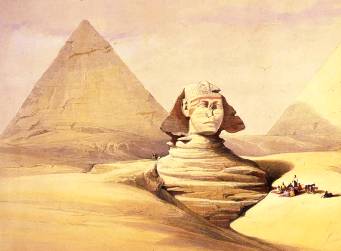Mubarak's End
In a post-Mubarak election, Egypt's fate—and perhaps the Middle East's—will be determined.
 The Hosni Mubarak regime is finished. The human tide that swept through the streets of Cairo, Alexandria and Suez has proclaimed its definitive delegitimization.
The Hosni Mubarak regime is finished. The human tide that swept through the streets of Cairo, Alexandria and Suez has proclaimed its definitive delegitimization.
The question now is whether Egypt will follow the Iranian scenario, with the Islamists—in Egypt, the Muslim Brotherhood—inheriting power, immediately or after a gradual suppression of its secular rivals, or whether with American help a secular alternative, backed by the army, will take over from the aged president.
The Americans signaled their preference and course when they chided the regime for employing violence, albeit nonlethal, against the protesters and then announced the effective suspension of military aid, amounting to $1.5 billion annually. The signal to the Egyptian military could not have been clearer: Dump Mubarak. (This came a bare three days after Secretary of State Hillary Clinton deemed the Mubarak regime "stable." Loyalty—to an ally of thirty years' standing—was not prominently on display in this affair.)
The American demarche was impelled by a swift appreciation that the ancien regime was dead and by a desire to stave off the Brotherhood, which on Friday joined the street rebellion. The army most likely will determine where Egypt is headed during the coming months.
But the real decision about the country's future will most likely be determined in four or six or eight months' time, when the country goes to the polls. An army-backed interim government, either of the wall-to-wall national-unity variety, comprehending secular and Islamic parties, or a narrower secular coalition, will pave the way for these elections, the country's first democratic experience.
And it is in that election that Egypt's fate—and perhaps the Middle East's—will be determined.
For if the Muslim Brotherhood, the largest and best organized of the country's parties, wins—as did Hamas, the brotherhood's little sister, in the Palestinian general elections in 2006—Egypt and the geopolitics of the Middle East will be revolutionized and radicalized, possibly to the point of precipitating a major war. The area will rapidly fall under the domination of an Iranian-Egyptian coalition and the Egypt-Israel peace treaty of 1979 will be scrapped.
If the secular parties win and subsequently successfully coalesce to stave off the challenge from Islam, Egyptians may benefit from a better, freer society and the Middle East may look forward to continued peace and a continuing equilibrium between secularism and Islam. These elections may well be the most significant anywhere in the Middle East since the 1970s.
